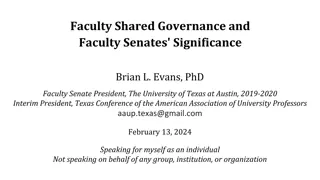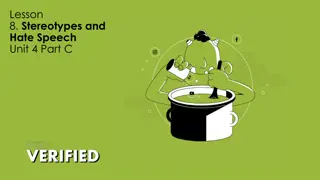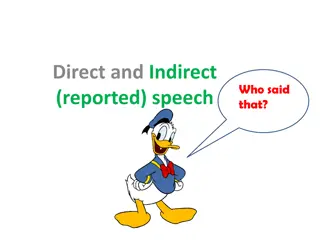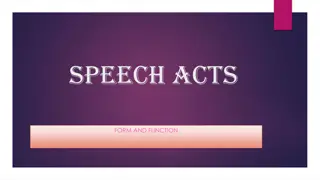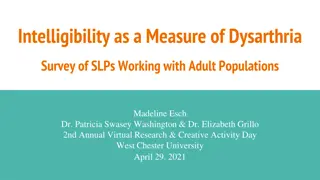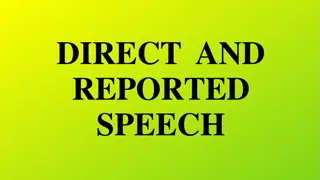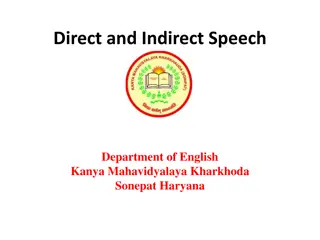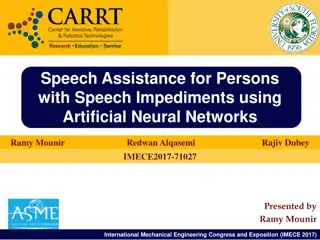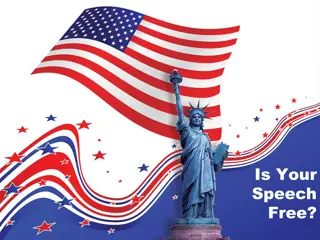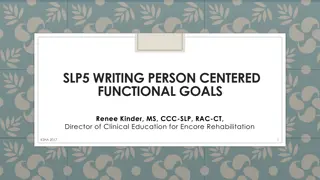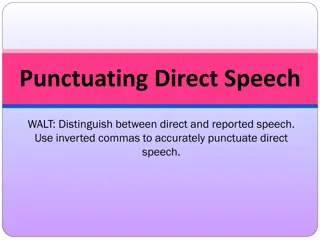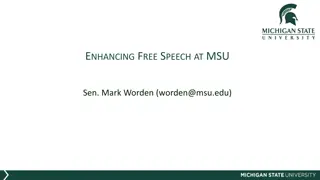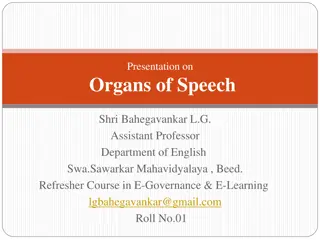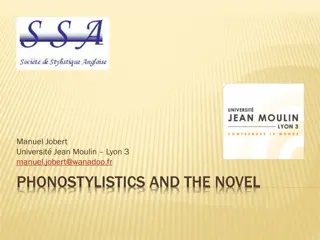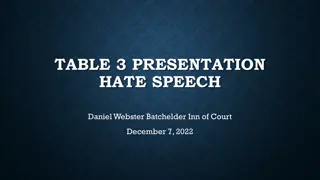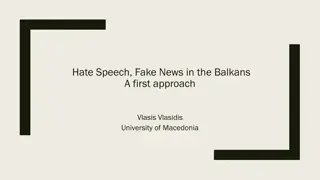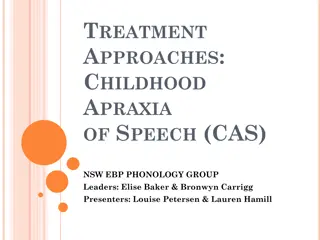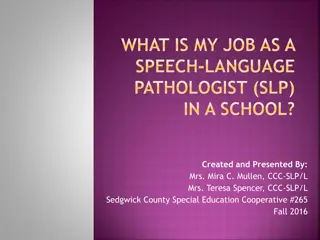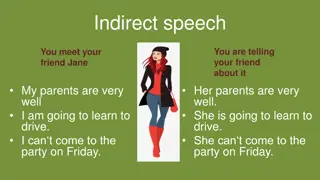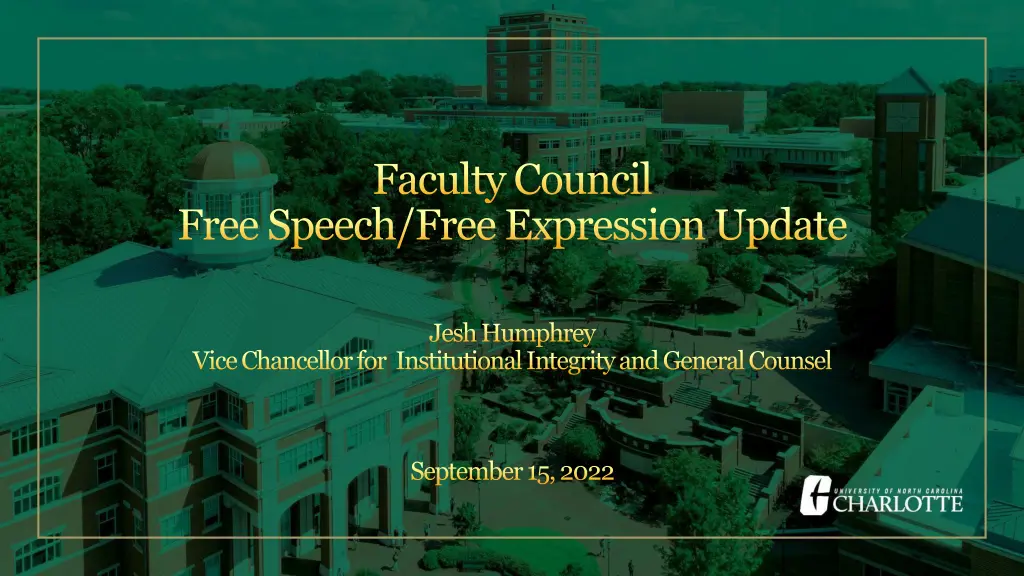
UNC Charlotte Faculty Council Discussion on Free Speech and Expression
"Explore the latest updates on free speech and expression at UNC Charlotte, highlighting legal aspects and key principles. Discover the commitment to fostering a diverse and inclusive community that values civil discourse and different viewpoints."
Download Presentation

Please find below an Image/Link to download the presentation.
The content on the website is provided AS IS for your information and personal use only. It may not be sold, licensed, or shared on other websites without obtaining consent from the author. If you encounter any issues during the download, it is possible that the publisher has removed the file from their server.
You are allowed to download the files provided on this website for personal or commercial use, subject to the condition that they are used lawfully. All files are the property of their respective owners.
The content on the website is provided AS IS for your information and personal use only. It may not be sold, licensed, or shared on other websites without obtaining consent from the author.
E N D
Presentation Transcript
Faculty Council Free Speech/Free Expression Update Jesh Humphrey Vice Chancellor for Institutional Integrity and General Counsel September 15, 2022
Overview of Conversation Brief free speech/free expression legal refresher How we re doing Next steps for UNC Charlotte and its Board
Free Speech/Expression Flyover Sources of Law and Policy First Amendment Congress shall make no law . . . abridging the freedom of speech . . . The Supreme Court has called freedom of speech and expression the matrix, the indispensable condition, of nearly every other form of freedom that occupies a preferred place in our constitutional system. Before the debate even starts, speech has an advantage, even against some very good reasons to limit it. Why? Freedom of Thought Democracy History ^
Free Speech/Expression Flyover Sources of Law and Policy NCGS 116, Article 36: Campus Free Speech Affirms First Amendment principles Establishes BOG Committee on Free Expression with annual reporting requirement Requires free expression to be included in freshman orientation It is not the proper role of any constituent institution to shield individuals from speech protected by the First Amendment, including, without limitation, ideas and opinions they find unwelcome, disagreeable, or even deeply offensive. (Chicago Statement) Institutions must not take action on public policy controversies of the day in such a way as to require students, faculty, or administrators to publicly express a given view of social policy. (Kalven Report lite) Section 1300.8 of The UNC Policy Manual: Policy on Free Speech and Free Expression Affirms and restates state law Prescribes disciplinary sanctions for disrupting free speech events Requires institutions to designate responsible officer(s)
Free Speech/Expression Flyover Basic Principles Freedom from and freedom to State action requirement Constitutionality of UNC Charlotte s content/viewpoint-based restrictions on protected speech subject to strict scrutiny Compelling governmental interest Narrowly tailored Least restrictive means Strict in theory, fatal in fact
How were doing Free expression is infused into our guiding commitments Integrity and Respect: Ensuring the highest academic, professional, and ethical standards and a collegial culture that embraces different perspectives, civil discourse, and free expression, where all University members are treated with respect, fairness, and dignity. FIRE green light speech code rating freespeech.charlotte.edu <2 complaints/annually related to administrative action that implicates free speech rights, dealt with swiftly Renewed commitment to inviting speakers representing diverse viewpoints Regular training sessions for faculty and staff
How were doing An uphill battle For all the tolerance and enlightenment that modern society claims, Americans are losing hold of a fundamental right as citizens of a free country: the right to speak their minds and voice their opinions in public without fear of being shamed or shunned. -New York Times Editorial Board, America Has a Free Speech Problem, March 18, 2022. Free Expression and Constructive Dialogue in the University of North Carolina System Faculty-led study initiated at UNC-CH in 2019 by Dr. Timothy J. Ryan and co-PIs Expanded to eight UNC System constituent institutions, including UNC Charlotte, in 2022 (UNC Charlotte investigator: Dr. Mel Atkinson).
How were doing Finding 1: Faculty generally do not push political agendas.
How were doing Finding 2: Campuses do not consistently achieve an atmosphere that promotes free expression.
How were doing Finding 3: Students who identify as conservative face distinctive challenges.
How were doing Finding 4: Students across the political spectrum want more opportunities to engage with those who think differently. Best opportunities for constructive engagement are in social settings, with fewer participants. Campus events should focus on consensus- building instead of an adversarial approach.
Next Steps UNC Charlotte faculty and administration Consideration by faculty of adopting the Chicago Statement or similar expression of support for free speech principles Chicago statement: free speech policy statement produced by the Committee on Freedom of Expression at the U. of Chicago in 2015; endorsed by FIRE, adopted by UNC-CH, WSSU, and App St. faculty governing bodies Continue to support academic freedom in the classroom. Continued focus on promotion of events and speakers bringing diverse viewpoints Creation of a formal free speech policy incorporating any faculty and BOT commitments Support additional campus climate research/surveys tailored to UNC Charlotte Other potential faculty considerations Including methodology and epistemology early in curricula Including free expression and viewpoint diversity as part of curricula Source: Campus Free Expression: A New Roadmap, Bipartisan Policy Center, November 2021
Next Steps UNC Charlotte Board of Trustees Have expressed formal support of faculty s exploration of adoption of Chicago Statement or similar expression of support for free speech principles Consider resolutions affirming UNC Charlotte s free expression policies and practices UNC-CH BOT endorsed faculty adoption of the Chicago Statement as well as the 1967 U. of Chicago Kalven Committee Report on the University's Role in Political and Social Action Support efforts to defend free expression when controversies occur Support additional campus climate research/surveys tailored to UNC Charlotte Source: Campus Free Expression: A New Roadmap, Bipartisan Policy Center, November 2021

![Prevention and Combating of Hate Crimes and Hate Speech Bill [B.9B.2018]](/thumb/60513/prevention-and-combating-of-hate-crimes-and-hate-speech-bill-b-9b-2018.jpg)
